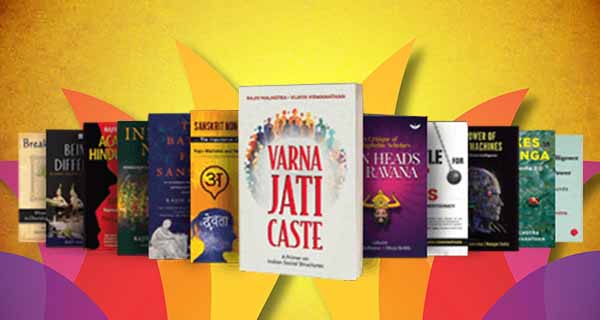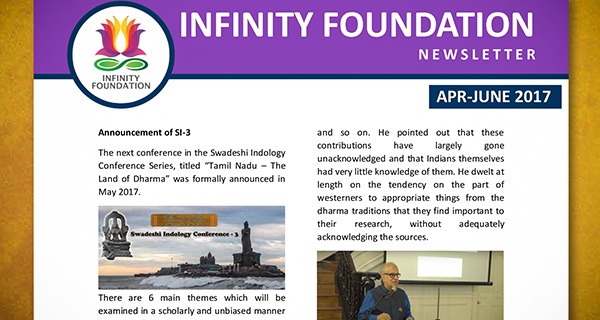Present
SOCIETY TODAY
Overview
DEVELOPING A GLOBAL CIVILIZATION
Definition of the Problem
Honest consideration of the history of European colonialism and its many genocides and of the extreme mass violence of the twentieth century has finally made it possible to question the unalloyed goodness of “modernity,” the reality of “progress,” and even the very “civilizedness” of “the West.” Still, in confronting the burning issue of our age — what is to be the nature and how the method of constitution of the global civilization mandated by advances in technology? — Western social sciences still operate in a vacuum, as if they alone have the superior intellectual key and the sole responsibility for solving all the urgent problems colonialism, industrialization, and modernization have created for the masses of people on this planet.
In regard to Indic civilization — in common with the civilizations of other “indigenous” “pre-modern” people — there stubbornly persists a pervasive stereotype that “traditional” Indians had no sense of time, no interest in history, no systematic ethical or political thinking, and no self-reflective thought about the nature of society. Supposed naïve pride in “timeless India” left India crippled, a society frozen in time. This supposed Indian ahistorical and otherworldly attitude is blamed for causing and perpetuating contemporary social ills such caste rigidity, systematic sexism, communal violence, and poverty. It is further presumed that such socio-historical myopia made Indians incapable of developing the sophisticated, critical social theories they need to adequately address contemporary social issues.
This stereotype supports the neglect of powerful currents of Indian thought as codified in Arthashastra, Dharmashastra, Nitishastra, and the many ethical treatises of the numerous Indian spiritual traditions. It prevents the pursuit of ongoing development of Indic worldviews, as they are deemed to be dead-end and cul-de-sacs. This is in sharp contrast to the Christian pursuit of “constructive theology” throughout most of its history, as a way to upgrade itself with the times. Especially considering Christianity’s historically revealed essential nature through historically unique prophets and events, in contrast with the non-historically unique nature of Indic thought, it seems unfair that the Indic worldviews be disallowed a similar right to “progress.”
This also leaves “the modern West” all alone in its supposedly sole discovery of the fact that human beings live in societies which can be structured in various ways, either to the benefit or detriment of the individuals involved, and all alone in shouldering the burden of responsibility of trying to come up with the best possible way of structuring the emerging global civilization — i.e., no help can be received from any “traditional,” “native” people such as Indians.
Under this still prevailing view, the remedy prescribed for India today — as also for the rest of the “non-Western” world — is the continuing importation or imposition of “civilization” from the West. This is subtly supported by the claim that Indic culture — like the currently dominant cultures of the Americas, Australia, and Africa — is imported to begin with, in consonance with the view of Indian history — like world history — as a series of invasions or migrations, in which “Western” people have ended up as unquestionably dominant (and therefore intellectually superior). The type of social understandings that India has produced, it is argued, have in fact been merely culturally bound social models with only limited (and limiting), indigenous application; these social models and descriptions, prescriptions, and proscriptions lack grounding in the type of meta-level structural analysis that might make them more universally applicable. Therefore, it is declared that Indic ideas do not qualify as true “social theories” in the contemporary sense of this term.
In contrast to such supposedly “traditional” models, post-structural and postmodern theoretical discourses are claimed to be unique in their highly useful deconstruction of categories, relativization of dichotomies (past/present, individual/society, base/superstructure), and problematization of existing social structures in such a way as to afford an analysis of the systemic dynamics and influences acting within and upon society. It is argued that this supposedly Western discovery has enabled sociologists for the first time to demonstrate how the very structure of a society’s economic, political, or educational systems itself has profound influences upon the individuals within that society. Such critical methodology presents more of a meta-level analysis, not constrained by particular contexts or essentialized notions, and so is more truly capable of developing “social theories” with universal applicability. It is claimed that this type of methodology and social theory are uniquely modern Western disciplines, developed by Western critical thinkers from Marx and Weber through Foucault, Bourdieu, and others, and that it has only been through recent exposure to such Western ideas that Indians have begun to engage in this type of dialogue.
Proposed Strategy to Respond
We believe it is time that progressive scholars reboot global cross-cultural dialogue, seen as competition amongst worldviews and truth-claims, on a non-hegemonic footing of initial equality, open to the possibility that one civilization or another may be superior on one point or another.
Scholars who do not share this mission tend to adopt one of four tendencies:
- Triumphalism: These scholars state baldly that hegemony is historically natural and rationally desirable: The winners in history are, by definition, superior, as this is also a pattern seen in evolution. As in nature, the victor consumes the defeated, and appropriates the positive aspects of those conquered. Hence, the contemporary West is the latest and best civilization, and the rightful owner of everything has and could appropriate. Others should now join it, and abandon prior and defeated civilizations, since they are now obstacles and scourges. Very few still today overtly take this stance.
- Denial: These deny that mainstream academic work is expressive of hegemony at all. While being in denial, they are intellectually familiar with the neo-colonized cultures. They are not so much in need of knowledge as of empathy. While issues of alternative interpretation are intellectually important in engaging with them, the larger aim is to seek to persuade them of the worth of changing their outlook.
- Paternalism: These persons genuinely feel empathetic to Indic or other non-Western traditions. They often speak passionately against Western triumphalism and for the interests of the subaltern. However, since they still tend to assume (perhaps unconsciously) the cognitive or intellectual superiority of the “modern,” or “Western” approach, they often discount the non-Western traditions’ abilities to speak for themselves. Such persons might have been well-meaning missionaries in previous centuries; nowadays they are either Marxist or “liberal.”
- Reverse triumphalism: These persons, who might also be called “nativists,” or “fundamentalists,” believe the “modern Western” approach to be wholly negative or even evil, and feel that the dogmatic assertion of some rediscovered and often imagined “indigenous” world-view to be their only recourse.
We hope that persons who share our vision discover and encourage each other, and help to develop a movement of dialogue that avoids the above four patterns.
Proposed Structure for the Study of Society Today
The overall four-gate structure of the mandala is only a provisional, creative framework to orient discussion and exploration; it is not intended to be rigid Likewise, we have tentatively organized the themes for Society Today into the following three general areas, but we welcome suggestions to enhance this framework.
(A) Reconstruction and applicability of Indic Social Sciences
Here the focus is on challenging the pervasive stereotype of Indic social unconsciousness with concrete examples and critical analysis. We challenge scholars to collect critiques of the commonly held view that critical, structural analysis of society is a uniquely Western invention, to discover to what extent indigenous Indian social thinkers have been engaged in this type of analysis, and to present Indic social scientific theories which suggest similarities or continuities with contemporary types of critical approach.
(B) Indic Intellectual Challenges to Western modernism/postmodernism
Here the focus is to explore the dissimilarities or discontinuities, seeking to highlight possible contributions that Indic theories might make to the global discourse, implicitly (or explicitly) challenging the chauvinistic and modernistic notions that contemporary Western critical social sciences necessarily produce superior analyses of and models for contemporary society.
(C) Strategies to Better Utilize Indic Contributions to the Global Renaissance
This final section deals in a broad summary way with a central concern: To pinpoint misperceptions of the “Indic” in Society Today, especially as perpetuated through discourse and structures within the Academy, and to suggest ways to redress these distortions as well as to present potentially positive but overlooked Indic contributions. This includes both presenting empirical data that refute the current misperceptions, as well as theoretical analysis of such meta-level issues as the current structure of the Academy (its disciplinary and departmental divisions, curricula, and so forth), suggestions for its restructuring, and strategies for overcoming the structural, procedural, or attitudinal obstacles to better incorporation of non-Western and traditionally time-tested arts and sciences. This also raises pedagogical and methodological issues regarding emic and etic approaches to Indic studies, the (re)integration of Hindu and Buddhist histories, and so forth. We hope to encourage scholars to discuss the types of paradigm shifts that might be necessary across a wide variety of fields, and the types of ideal agenda for systematic investigation, publication, and dialogue over the coming decade, in order to involve mainstream academia in the process of completing, rather than resisting, the coming global renaissance.



